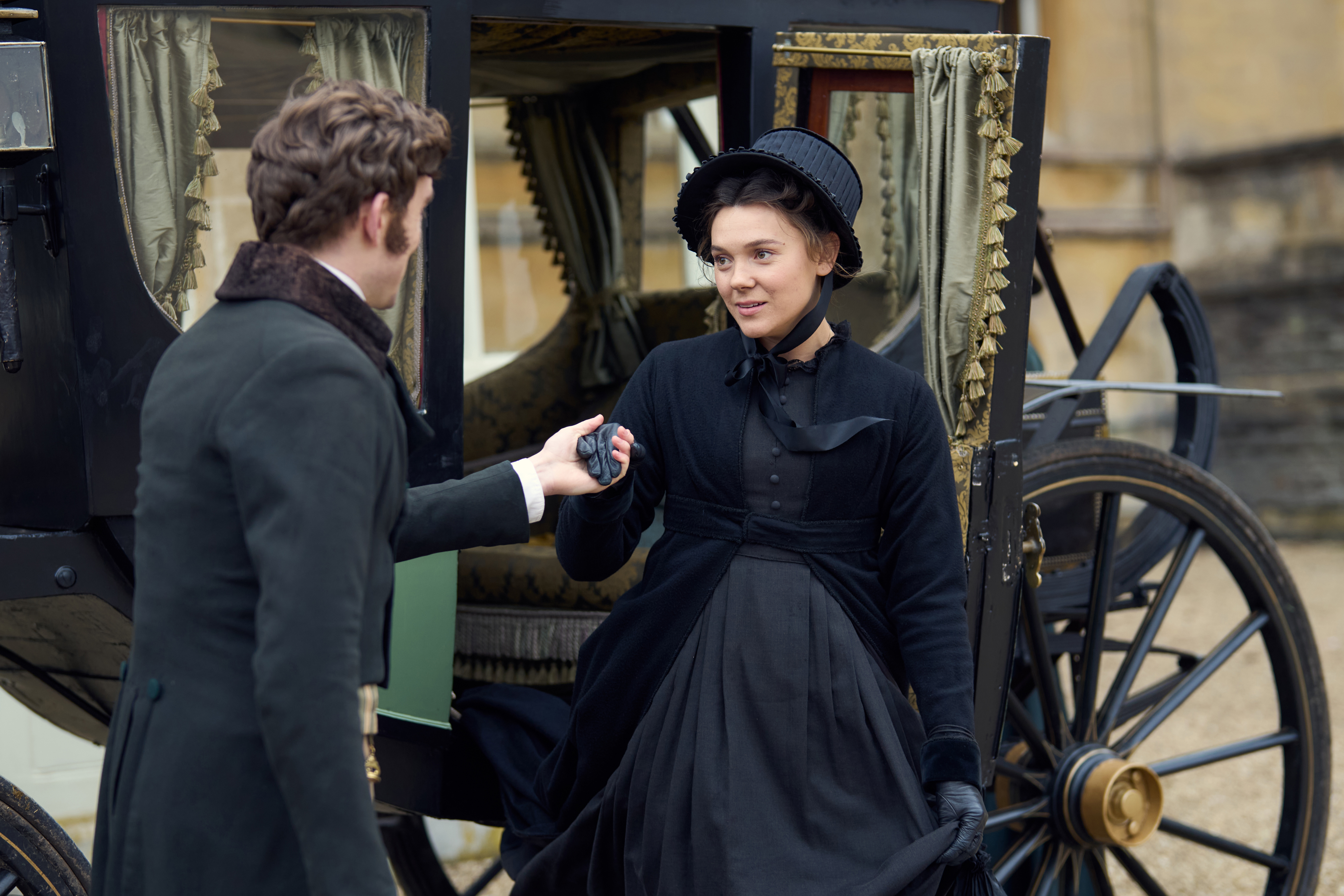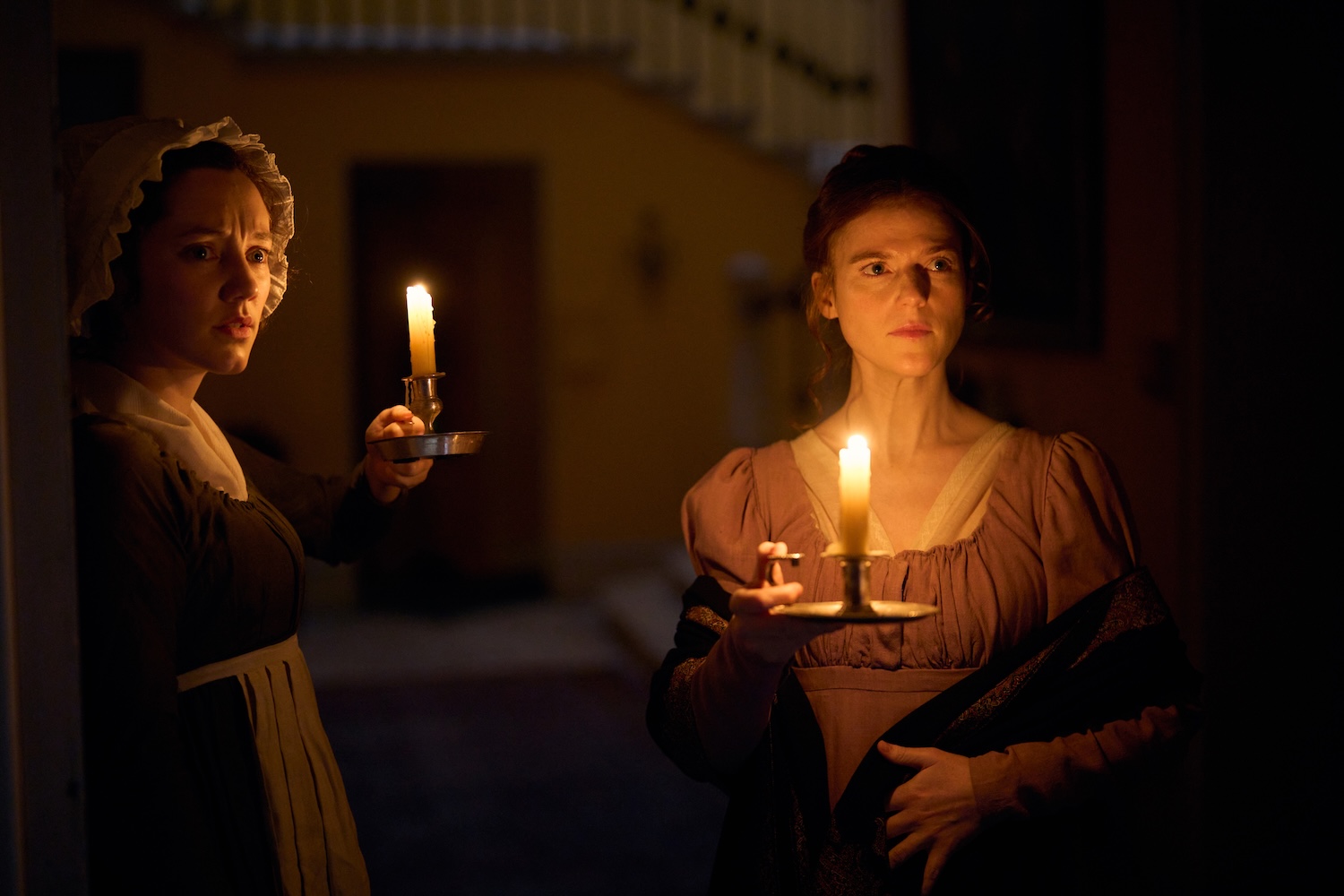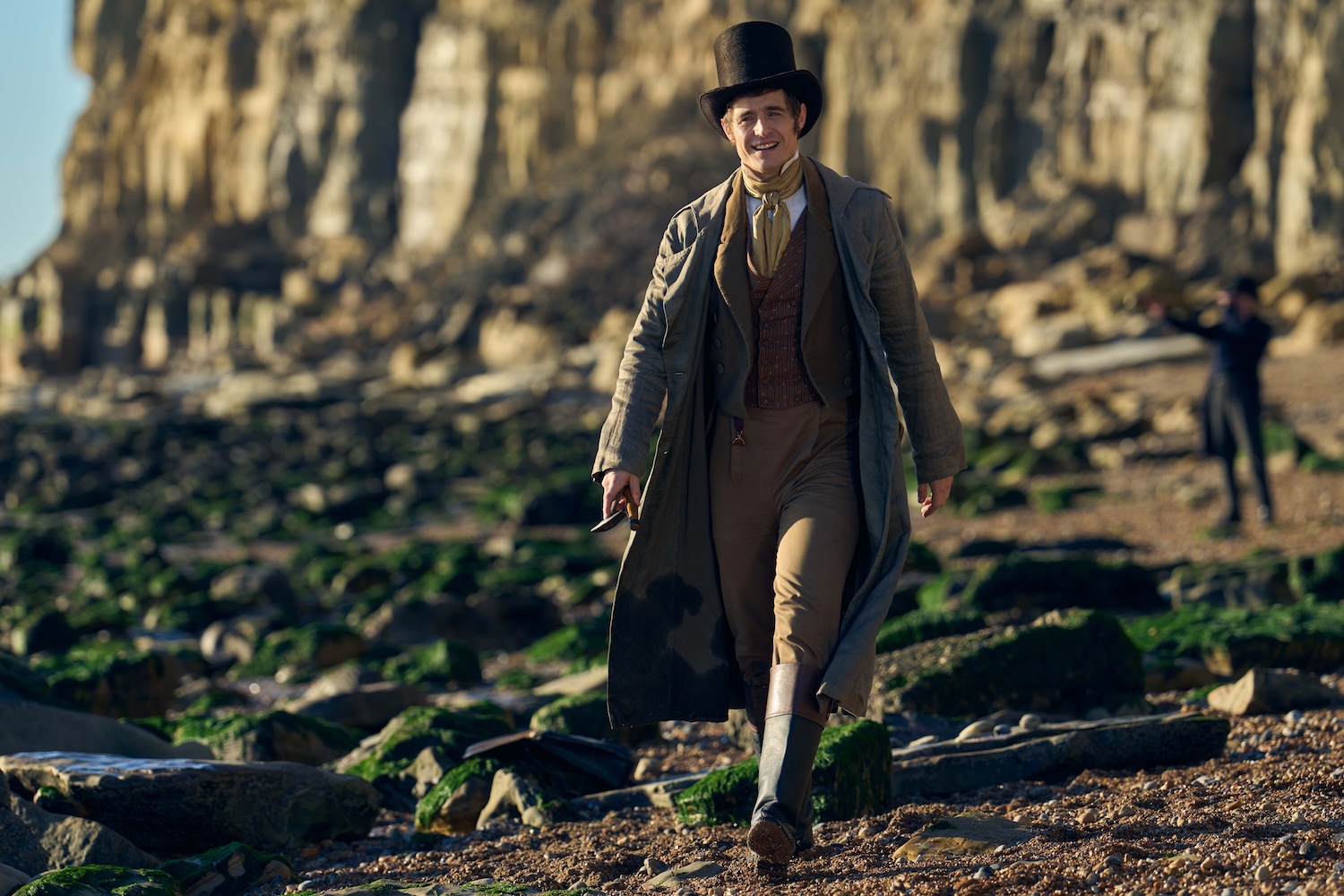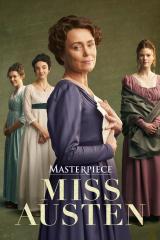'Miss Austen' Stages a Meet-Cute Worthy of Jane's Novels
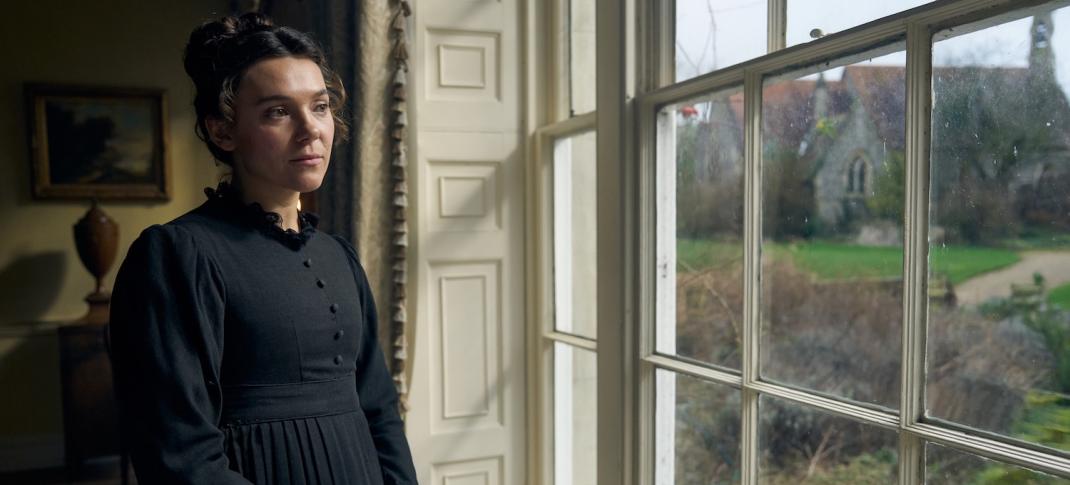
Synnøve Karlsen in "Miss Austen"
(Photo: Masterpiece)
The viewing experience of Miss Austen often feels like two completely different shows fighting under a blanket. There's the more pedestrian primary narrative, which follows the elder Cassandra as she attempts to protect her famous sister's legacy and reflects on her choices, primarily through her attempts to help her late BFF's daughter navigate life after her father's death. Then there's the show that exists in the flashbacks of this story, a bubbly, utterly charming (and extremely Jane Austen-esque) romance. The two halves of Miss Austen's whole exist uneasily next to one another, and perhaps that's why it's so difficult to figure out precisely what this show is trying to say.
On one hand, there are heavy-handed social and political metaphors: Unmarried Cassy is exploited by her in-laws for childcare services. Isabella is forced to give up the family's china because her brother is set to inherit it. On the other hand, there is dreamy, trope-filled joy: Cassy's grief begins to heal thanks to her sweet meet-cute with the dreamy and hilariously named Henry Hobday (Max Irons). The tonal imbalance is more than a bit striking, particularly as Cassandra's mission to hide her sister's letters continues. Though she seems to be making decent enough progress through the backlog of Jane's correspondence, it's still incredibly unclear what's so dangerous in these missives.
There's a better version of this series that picks a lane: the bubbly, frothy rom-com that seems to serve as a template for so many of Jane's feelings about romance or the more dour drama that attempts to wrestle with issues of female autonomy more realistically. And either on its own might be better than this one, which clumsily attempts to do both and is only partially successful.
The flashbacks are far and away where Miss Austen shines brightest. For the most part, they feel like watching an Austen novel come to life, the relationships between the varied characters are rich and lived in, and it more than feels like there's enough story here to simply stand on its own as a what-if drama about what Jane Austen's real life might have been like. Whenever we're following the Austen clan, all the business with the older Cassandra and Jane's letters feels far away, and many viewers (read: me) likely feel a bit resentful whenever the show pulls out of the past to focus on the much less interesting present.
A big reason for that is Patsy Ferran and her genuinely captivating performance as Jane. Fierce and funny by turns, she runs the gamut from charming ("I'm something of an expert in romantic matters) and slyly observant to bullishly moody. Her utter refusal to contemplate a life of marriage, even to a man as dreamy as Hobday, because she's afraid it would rob her of time and inspiration to write, is easily understandable, and you'll only wish we saw more of her throughout this section of the show.
But the romance here belongs to Cassy, helpless against Henry's charms. He may have the most ridiculous name ever, but he's also intelligent, handsome, well-read, a feminist, and great with kids. Who wouldn't immediately fall in love with him? Particularly when they lock hands over a casual handbrush in a shop? (Truly, it's just like in a Jane Austen novel.) Still figuring out the shape of her life without Tom in it, Cassy is initially dismissive of the attraction between them. But, as any fan of late 1980s pop music can tell you, you can't fight fate.
Though Isabella is nice enough, the question of her future is hardly the narrative linchpin the show wants it to be. Rose Leslie tries her best (as a performer, she's particularly skilled at the layered stoicism of period drama), but everything about this subplot is painfully unsubtle. Her awkward, emotionally loaded run-in with Lidderdale loudly telegraphs the shared history that the show thinks it's being clever about hiding. (Gosh, I wonder what it means that Isabella loves Persuasion's Anne Elliot so much?)
Despite Cassandra's bullheaded insistence that the grieving young woman's life will be improved by being foisted off on her sisters, her meetings with the pair do nothing but prove how incorrect she is.
Beth, a teacher who also seems to work as an assistant to Lidderdall, clearly has no room for Isabella in her life and seems more than a little resentful of the coddling her sister has received at the hands of their father. Mary Jane is an eccentric weirdo who seems strangely paranoid and freakishly obsessed with taxidermy. For her part, she seems to view Isabella as deeply incapable, who could never survive living in the world on her own. Neither is all that interested in Isabella's happiness or what she wants out of her life.
Perhaps this would all be more interesting if Cassandra felt truly on Isabella's side or doing something other than pushing her toward a future she's specifically indicated she doesn't want. But, as yet, that doesn't seem to be happening, and it makes elder Miss Austen seem both strangely detached and vaguely dumb.
The highlight of the present-day plot is sister-in-law Mary Austen. Played with a combination of perfectly waspish bitterness and strangely touching loneliness by Jessica Hynes, the character feels like a bizarre prototype for many of Jane's most unlikeable female characters. Mary's delightfully awful, bullying Isabella, her servants, and her dog by turns, and ordering the household to suit her preferences even as she searches for Jane's letters with the clear aim of exploiting her connection to a famous person for her own gain. She's awful, but the character at least feels honest, which is, unfortunately, more than you can say for adult Cassandra a lot of the time.
Perhaps Mary is so wretched if only so we, the viewers, have little choice but to take the elder Austen sister's side in the battle over Jane's legacy. Surely it must be better to have Jane's letters destroyed than to entrust them to a woman like...that. Particularly since this episode goes out of its way to once again show Mary going out of her way to frame the narrative of the past to suit her preferred version of events. Because while the question of whether Jane fell in love in Sidmouth is one that historians and Austenites still wrangle over, Miss Austen certainly doesn't think so.
In the flashback version of events, Jane and their adorable niece Anna conspire to get Cassy out of her faux widows' weeds, secretly ordering her a dress made in that sunny yellow fabric she looked at earlier in the episode. It's a lovely moment on every level, and she really does look stunning—not everyone can pull off that color! (Heck, even gruff old Kevin McNally gets teary.) For a moment, it seems as though this sort of fashion rebirth will be effective on multiple fronts: Cassy takes a walk arm in arm with Henry Hobday, and she's positively glowing. Jane writes to Eliza that her sister is in love, and with so many rom-com tropes unfolding onscreen before us, it's hard to argue with her. But, well, we know Cassandra is alone, and has never married. The question, I suppose, is what happened between then and now?
The hour concludes with primary timeline Cassandra passing out, likely having caught a cold (or something worse) from her sojourn into the village, where sickness was already running rampant. Isabella, determined to prove that she doesn't need Lidderdale, decides she can nurse Cassandra herself and forbids Dinah from going out for help. Perhaps this would be more compelling (or at least make something that felt vaguely like sense) if we knew literally anything about whatever happened between the two of them, because this scheme is more than a little insane. And truly at this point if no one notices the pile of letters poking out from Cassandra's drawer, they're all hopeless.
Miss Austen airs on most local PBS stations and streams on the PBS app weekly on Sundays at 9 p.m. ET. All episodes are available for PBS Passport members and the PBS Masterpiece Prime Video Channel to binge before their on-air broadcast.

